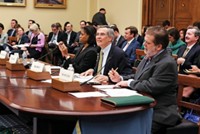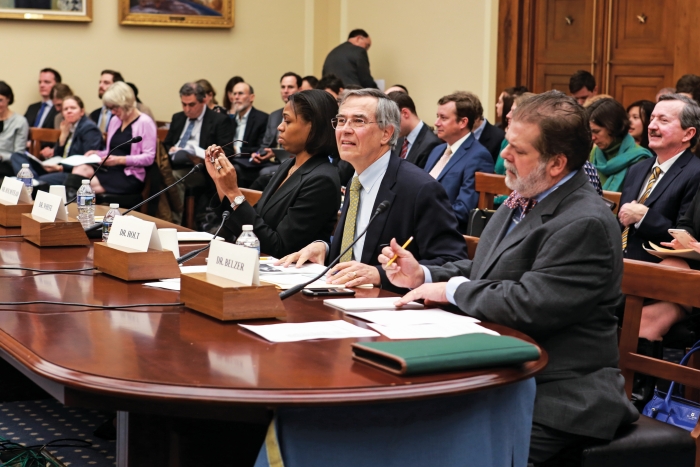Advertisement
Grab your lab coat. Let's get started
Welcome!
Welcome!
Create an account below to get 6 C&EN articles per month, receive newsletters and more - all free.
It seems this is your first time logging in online. Please enter the following information to continue.
As an ACS member you automatically get access to this site. All we need is few more details to create your reading experience.
Not you? Sign in with a different account.
Not you? Sign in with a different account.
ERROR 1
ERROR 1
ERROR 2
ERROR 2
ERROR 2
ERROR 2
ERROR 2
Password and Confirm password must match.
If you have an ACS member number, please enter it here so we can link this account to your membership. (optional)
ERROR 2
ACS values your privacy. By submitting your information, you are gaining access to C&EN and subscribing to our weekly newsletter. We use the information you provide to make your reading experience better, and we will never sell your data to third party members.
Policy
Congressional panel battles over subpoenas of scientists
House Science Committee Republicans say inquiries important to protect federal research
by Jeff Johnson
September 15, 2016
A sharply divided U.S. House of Representatives panel on science debated its own investigatory powers, notably its probes aimed at scientists, at a Sept. 14 hearing.
The hearing’s purpose, according to Science, Space & Technology Committee Chairman Lamar Smith (R-Texas), was to determine the panel’s subpoena powers and “affirm” the legitimacy of the committee’s ongoing inquiries. Those probes have often focused on climate change science and scientists. As chair, Smith, who rejects the notion of the U.S. acting to curb greenhouse gas emissions, has sole authority to issue committee subpoenas.
In July, Smith subpoenaed communications between a number of advocacy groups—the Union of Concerned Scientists and seven other science and environmental organizations—and the attorneys general of New York and Massachusetts. The two states are investigating whether ExxonMobil committed fraud in statements over decades to shareholders and the public on the risks of climate change. The attorneys general are relying in part on the eight organizations’ research.
Smith and committee Republicans say they need to see the documents to determine if the states’ investigation will damage federal research and have a “chilling impact” on scientific research by exposing scientists to political pressures.
However, a letter discussed at the hearing and signed by 2,100 scientists says the opposite. The scientists contend that committee Republicans are inappropriately interfering in the investigation. ExxonMobil has created a “chilling effect” by suppressing its own scientists’ findings that show those scientists warned the company about climate change risks in the 1970s, the letter says.
The groups and attorneys general have refused to comply with Smith’s request, saying the committee lacks authority to obtain internal communications.
At the hearing, several Republican committee members threatened to hold them in contempt of Congress.
Democrats at the hearing were united against the subpoenas. Ranking Democrat Rep. Eddie Bernice Johnson (D-Texas) called the hearing “a brazen attempt to assist ExxonMobil in the face of legitimate fraud investigations by state attorneys general.”
Since taking over the committee in 2013, Smith’s probes have frequently generated alarm in the scientific community. For example, Smith spent more than a year looking into the National Science Foundation’s peer review process and into individual grants that he considered wasteful.
In November 2015, seven large science organizations, including the American Chemical Society, wrote to Smith expressing “grave concern” about his ongoing investigations into federal research, particularly work showing the impacts of climate change. ACS publishes C&EN.






Join the conversation
Contact the reporter
Submit a Letter to the Editor for publication
Engage with us on Twitter